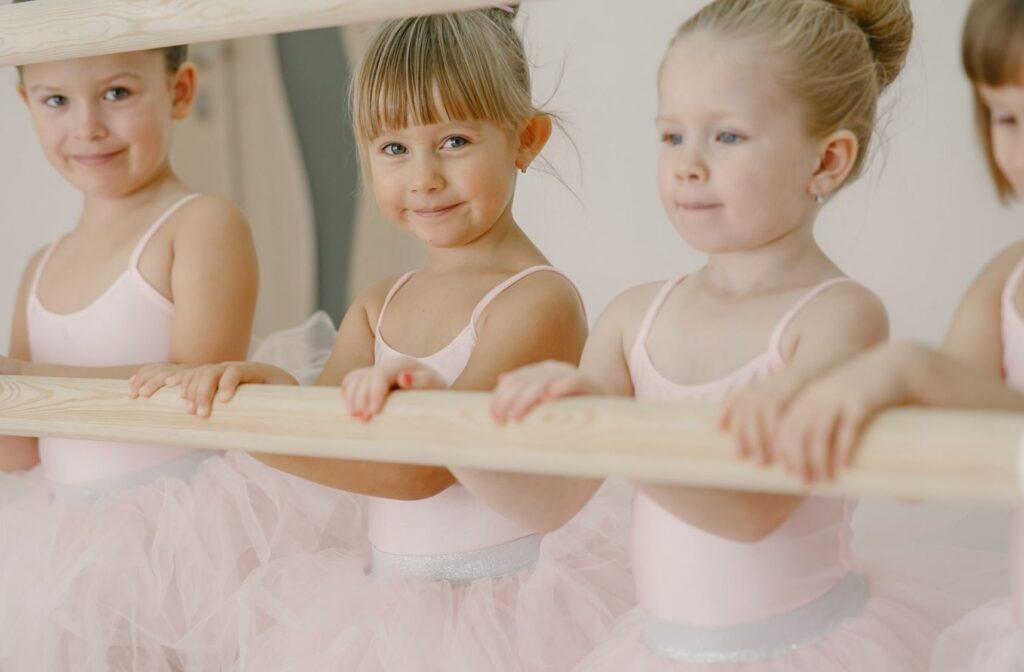An ideal primary school provides a supportive environment where kids can fully accomplish their goals and learn. Young children are more likely to regularly attend school if they have teachers and lessons that they find exciting and enjoyable. As parent, we always want the best for our child. We would like to assist them not only learn in school, but also after school, to fulfill their interest and support their development by extracurricular activities. Today, we invite Antonio, a father and primary school teacher, to discuss the best 10 extracurricular activities for young schoolers from his point of view.
Related Reading:

Table of Contents
What are Extracurricular Activities?
“Extracurricular activities” refers to a broad category of student-focused programs offered beyond the typical school day and curriculum. These events can motivate children to get more involved in their schools and neighborhoods. They also encourage the development of essential social and emotional skills.
Some extracurricular activities for young schoolers examples are team sports, theater productions, off-campus excursions, personal interests, volunteer work, hobbies, arts, and school clubs. Joining extracurricular activities help enhance the curriculum. These events could be organized according to participants’ ages and interests.
Benefits of Extracurricular Activities
Related Reading:
- How to Stop Kids from Chewing Their Shirt
- 8 Type of Intelligence – Every Kid is Gifted
- 10 Ways to Be an Upstanders in Bullying
The benefits of extracurricular activities for young schoolers go far beyond the obvious ones, such as keeping them mentally and physically active. Here are some of the benefits of Extracurricular Activities.
● Facilitates Healthy Social Development
Participating in extracurricular activities can help your children hone the interpersonal abilities they’ll need later in life. They offer chances to take charge, work together, and connect with their peers. Participating in extracurricular activities can also expose your kids to new perspectives by exposing them to people from other backgrounds. In addition, they learn to work together as a team. Instilling the value of teamwork at a young age can set them up for success in many areas of life.
● Improves Self-Esteem
Joining extracurricular activities is an excellent way for kids to nurture their self-esteem. Research has shown that teens who were active in clubs and organizations in high school had higher self-esteem than those who were not involved in clubs (Kort-Butler & Hagewen, 2011). Different activities allow young children to discover their strengths and interests, and this can help them feel better about themselves.
● Better Emotional Health
Participating in extracurricular activities has been linked to a higher sense of well-being. For example, the University of South Australia and the Australian Government’s Department of Education recently published a study showing that kids’ well-being increase when they engage in extracurricular activities but declines when they use electronic media like social networks or video games.
● Teaches Life Skills
Extracurricular activities also provide valuable life skills training, such as basic cooking, sewing, and language acquisition. In addition, it helps your child develop self-confidence, the ability to solve problems, and leadership qualities. When they move out into the real world, they will find these skills very helpful.
Best Extracurricular Activities For Young Schoolers
Around age five, kids develop the self-control necessary to participate in structured extracurricular activities. They can participate in various sports, clubs, and extracurricular activities offered by schools and local organizations. Among the best extracurricular activities available to kids nowadays are the following:
1. Joining Music Classes
Related Reading:
- Group or Private Music Lesson: Which One to Choose?
- 6 Signs For a Musically Gifted Kids
- 10 Benefits for Kids to Learn Musical Instruments
- 9 Musical Instruments for Kids to Start
- The Cost Overview of Learning Music

Music is always considered as the top extracurricular activities for young schoolers as they are beneficial for the brain development. Many kids have a natural affection for rhythms and music which gives them a sense of freedom. They get to choose what music they hear and play.
Children’s early exposure to music has been linked to improved social and emotional development. In addition, music stimulates all areas of child development and school preparedness. As a result, students who take up an instrument often improve their math and general academic performance.
In addition, young children who take up an instrument can learn valuable lessons early on about the rewards that come from perseverance, hard work, and practice. So your children will definitely have a blast if you choose a drum, piano, flute, shakers, xylophones, or maracas.
2. Engaging in Visual Arts (Painting, Drawing)
Related Reading:

Encourage creativity in your children and channel their inner Picasso and Rembrandt. Painting or sketching is one of the best ways to encourage creativity in children. Kids who engage in mentally challenging hobbies, such as painting, improve their memory, reasoning, and problem-solving skills. In addition, mastering the use of a paintbrush is a great way to develop your hand-eye coordination.
Using different painting tools helps children develop their fine motor abilities, particularly in the hands, wrists, and fingers. This allows children to polish their fine motor skills, which are necessary for classroom writing tasks like holding a pencil and turning the pages of a book.
3. Learn Martial Arts

Since I spent so much time training in martial arts as a kid, the subject is dear to my heart. This experience has not only given me the ability to defend myself but also helped me become more humble, tenacious, and self-confident. Enrolling your children in self-defense classes will enable you to teach them how to defend themselves like seasoned experts. As a result, your kids’ confidence will soar after taking up martial arts. The various forms of martial arts may conjure images of violence, but what they really teach is discipline and how to regulate one’s strength.
4. Participate in Theater Class

Why not give your kids the opportunity to show what they’re capable of by enrolling them in a theater class? Children can learn much about teamwork and collaboration from theater classes. Kids can learn to collaborate as a group, share ideas, and encourage others. They also learn to share the spotlight and respect other people’s perspectives. All of these skills are vital not only in school but also in the real world.
By joining the drama club, your child will learn to be active, express themselves creatively, interact with others, and speak in public. As a result, kids who struggle with shyness may find the confidence and courage to express themselves through acting classes. It also helps a child’s memory and ability to think on their feet.
5. Try Pottery Making

When making Pottery, nothing beats the feeling of having your hands dirty. And why not? Pottery has been made for thousands of years for decoration and practical uses like cooking and carrying water. In addition, making Pottery is a beautiful children’s activity since it gently stimulates the hands, which is great for sensory development.
Creating Pottery Improves skill and strength in your child’s little hands with mild wrist and arm exercises. Having children try their hands at Pottery is a terrific way to stimulate their senses and teach them valuable life lessons, regardless of whether or not they make a masterpiece. Creating Pottery can help connect to the past and better appreciate their ancestry and heritage.
6.Enroll in Dancing Lessons

You might observe your youngster swaying to the beat of intriguing music. Dancing is a great way to let go, unwind, and express yourself. It’s excellent for building confidence and enhancing motor skills. In addition, learning classical dance is a great way to introduce your children to new cultures.
The available options mean you can find one perfect for your child. She may have fun learning folk dances from around the world, or maybe she’d instead study something more contemporary, like hip hop or lyrical. Your child’s physical and cognitive growth will benefit from participating in any form of dance because of the discipline and stamina required.
7. Play a Team Sports

What do sports legends like Michael Jordan, Serena Williams, and Stephen Curry all have in common? Grit and determination. Joining sports is an excellent way for children to learn and practice these same values.
Sports are great for a child’s development since they promote physical growth, teamwork, determination, and playing fair. In addition, recent studies have revealed that taking part in extracurricular activities like school sports can have a positive effect on student’s performance in the classroom.
Encourage your children to participate in any sport, and you’ll see them develop physically, mentally, and emotionally. Team sports like football, basketball, cricket, and softball demand a lot of physical and mental stamina. So if you don’t think these activities are a good fit for your child, consider alternatives like gymnastics, swimming, and bowling.
8. Take-up Cooking Lessons
Related Reading:

Children can easily spend hours in the kitchen. Enroll your kids in a cooking class and watch them grow into mini-Michelin stars in no time. Learning to prepare nutritious meals is an essential skill to have. Learning to cook is a terrific opportunity for kids to exercise their creativity while also gaining valuable life skills. Measuring ingredients and setting the timer can help improve practical math abilities.
Students benefit from learning how to prepare nutritious meals and snacks while at school. The school contributes to the long-term well-being of pupils by teaching healthy nutrition through correct food preparation. When inviting children of any age into the kitchen, safety should come first. Make sure that they thoroughly comprehend and adhere to all food safety guidelines. In addition, it’s essential to thoroughly clean the table, utensils, and surrounding areas before each use.
9. Learn a New Language

You may believe that your child will have a tough time learning a new language because she is too little at this point. However, the opposite is true in this case. Learning a second or third language is typically more accessible for younger people. This is because, before age five, the same brain region responsible for learning one’s native language is used to learn a second language.
Young children who are exposed to numerous languages have an advantage in learning and retaining that information. Another reason it’s easier to learn a new language as a kid is that there’s just less of it to learn. Studies show that children who learn a second language have cognitive and scholastic benefits, including improved creativity, problem-solving skills, and standardized test scores.
10. Learn To Sew

You might be surprised why sewing is in the list. But why not? Knowing how to sew is a valuable life skill that your child can use in the future. Sewing is a great activity for kids because it helps them practice and develop skills like problem-solving and concentration. Sewing, which calls for delicate and accurate hand movements, is excellent for developing these abilities.
People who learn to sew at a young age develop fine motor skills, coordination, and the ability to manipulate small objects easily. Think about what those tiny fingers will be capable of someday. A child today could grow up to be a surgeon or engineer. They may also develop a taste for fashion as they age, which might be an excellent foundation for their future careers.
Point of View as an Educator
Extracurricular activities are not only for high school students to write in their essay for university applications, it should be a hobby that help young schoolers develop interests. As a teacher, I think it’s important for students to learn not just in the classroom, but also in real-world situations. Fortunately, numerous extracurricular opportunities, both at the club and grade level, are available to students at my school. At the beginning of the school year, students are given the opportunity to join a club that best suits their interests. Cheerleading, theater, performing arts, and sports clubs are all quite popular.
Challenges of Extracurricular Programs
Extracurricular activities often face issues with funding and accessibility due to a lack of resources. Not all institutions have the resources to provide students with extracurricular opportunities. Some extracurricular activities for young schoolers are cost more than others, for example, music private lessons or dance lessons. Some families just can’t afford it.
Moreover, time management can also become an issue. Too many students make the mistake of trying to juggle too many extracurricular commitments that finally loose concentration. We recommend to limit the activities to two per school year, preferably one team sport and one other.
Final Thoughts From Pragmatic Lifestyle
Try out a few of the suggestions above to see which ones your kids appreciate the most. Don’t force them to do anything because it will only make things more difficult. Young people thrive when they are allowed autonomy and have their decisions explained honestly.
About me
What’s up? I am currently based in the Philippines with my wife and two grown-up sons. I’ve been an educator for over two decades. Thanks to my dual roles as a teacher and parent, I have a unique perspective on parenting. My eldest son attends college during the week, while the other stays with us at home. So on the weekends, we try to do something fun as a family. Our family finds that spending trips together is a great way to strengthen our bonds.


1 Comment
Comments are closed.